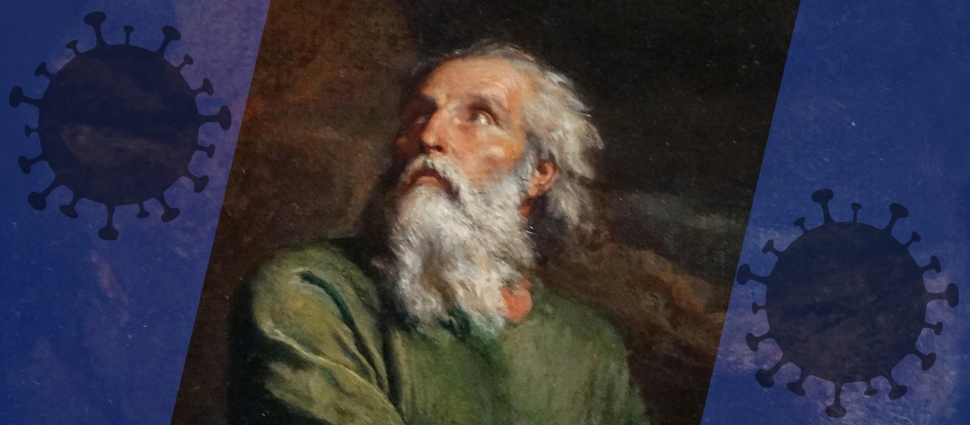COVID-19 Is God's Judgment

Editor's Note: This post is was originally published on the author's blog, and is intended as a response to this article by Jim Denison.
One of the questions prompted by any crisis is whether God is inactive. Is he stepping aside and allowing calamitous evil to befall his creation and people? Is the crisis something beyond God’s power? Or, perhaps most frighteningly, is the catastrophe something that is being orchestrated by God?
These questions are common whenever we are confronted with suffering, and are elevated to prominence in times of widespread disaster, such as the moment we find ourselves with COVID-19.
Is the coronavirus God’s judgment for sin? The answer must be yes.
When sin entered creation, the curse swiftly followed. The curse pronounced in Genesis 3 was God declaring that the world would become resistant to humanity’s dominion. Creation ceased to be cooperative and became antagonistic to us, the image bearers who were to cultivate it as God’s stewards. This resistance (“Cursed is the ground for your sake! Thorns and thistles it shall bring forth against you!”) is God’s judgment on sin.
All the effects of the curse are God’s judgment upon the sin of humanity, and is God’s continual, providential engagement with creation (cf. Isaiah 24:1-13, Lamentations 3:37-39). God’s involvement in governing creation has not ceased upon the introduction of sin, but continues as he sovereignly upholds the universe until Christ returns (Revelation 22:3).
When the scourge of the curse befalls his people, our reaction should be to evaluate our lives in light of God’s holy judgment. This was the way in which God dealt with his people in the old covenant (e.g. Deuteronomy 11, 28, Hosea 8:1-3), and alerts to how he graciously addresses us as the people of the new.
In John 9, Jesus is asked by his disciples about a man who had been blind since birth, “Teacher, who sinned to cause this man to be born blind, him or his parents?” The disciples were aware of the curse of sin and concluded that sin caused the blindness of the man. But then Jesus corrects their underlying assumptions: “It was not that this man or his parents sinned, but that God might manifest his works in him.” Jesus’ words here warn against discerning specific, immediate causes for suffering apart from divine revelation.
The prophet Joel provides such a divine framework for understanding God’s intent when crisis strikes. Israel had been struck by a plague of locusts with devastating effect. This was part of the normal rhythm of nature, insofar as it had no obvious tell for being divine intervention into creation, and there were no specific sins that appeared to warrant the plague. Joel then steps in and pulls back the curtain from the natural to explain how suffering is God’s judgment for a purpose.
“Put on sackcloth and lament! Cry out to the Lord! Repent!” Joel 2 explains that God is patient, and he relents from disaster when his people repent; the locusts were the judgment of God intended to solicit repentance of sin from his people, even though there was no widespread, culturally practiced evil mentioned. The “normal” effects of sin’s curse are God’s judgment in order to heal. Judgment happens so the works of God’s restoration might be demonstrated in our repentance (cf. Hebrews 12:4-17).
This is how Jesus interprets the catastrophe that befell the Galilean victims of Pilate and the collapsing tower of Siloam in Luke 13. It was not a question of whether those who suffered were more sinful, but how should those who witness and experience suffering react? “Unless you repent, you will all likewise perish.”
This is how COVID-19 must be understood with the eyes of faith: It is God’s judgment for sin in order in to prompt our repentance. We would be mistaken to try and discern specific sins that prompted COVID-19 since God has not revealed that. But it would be more grievous to assume that the infliction of the coronavirus is occurring outside of God’s providential work of redemption. With the prophet Joel, we must respond in lamentation and repentance of our sin. Assured by Christ, we should be comforted that in repenting of our sins and turning to him in faith, we will not suffer as those without hope.
Cameron Shaffer (M.Div., Redeemer Seminary, M.Th, University of Glasgow) is a pastor in the Evangelical Presbyterian Church, ministering in Clarkston, MI. He can be found online at cameronshaffer.com."
Related Links
Mortification of Spin: "But They Had Everything in Common"
"In the Face of Crisis, Fear the Lord" by Christina Fox
"Submit to the Government Serving God to Save Lives" by Grant Van Leuven
"Coronavirus and the Church: Compliant, or Uncreative?" by Terry Johnson
What Is the Church? with Michael Horton, Greg Gilbert, and Robert Norris [ Download ]
Seven Churches, Four Horsemen, One Lord by James Boice




